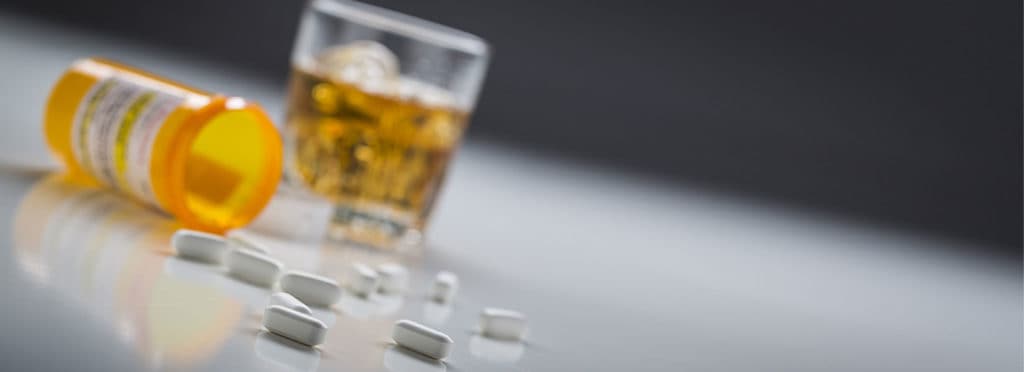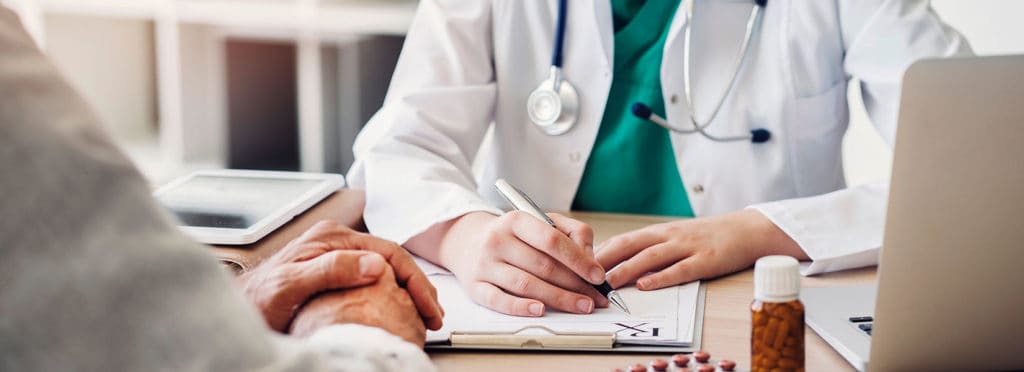What Is A Drug Interaction?
Essentially, a drug interaction occurs in certain scenarios, including when taking two or more medications, a medication combined with a supplement, food, other substances, or while having a medical condition. Drug interactions can alter the medication’s effect on the body in various ways, such as causing the medication to be more potent, less potent, or causing unexpected side effects. These side effects can range from mild to severe.
Roughly 66% of U.S. adults take prescription drugs, and many individuals are also taking more than one prescription drug on a daily basis. Whenever a person is taking a drug—and particularly when they are taking multiple drugs—they run the risk of a drug interaction, which is why it is crucial to be aware of the different types of drug interactions and what steps you can take to best avoid these situations.
Types Of Drug Interactions You Should Know About
The more information we have, the better equipped we are to take precautionary measures that may prevent unpleasant side effects from a drug interaction. Drug interactions you should know about include:
Drug-drug interactions
Drug-drug interactions can occur when taking two or more drugs, including taking multiple prescription drugs, mixing an illicit drug with a prescription drug, or mixing two or more illicit drugs. An example of a drug-drug interaction could be an individual taking two similar over-the-counter NSAIDs, such as Advil and Aleve. Combining more than one NSAID will not relieve pain faster, and in fact, could increase the risk of other side effects contributed to NSAIDs, such as stomach bleeding.
Drug-alcohol interactions
Drug-alcohol interactions may occur when consuming alcohol while taking a certain drug. Many drugs include warnings against the consumption of alcohol while taking them. Mixing a drug with alcohol may cause mild side effects such as drowsiness, but in some cases, such as with certain antibiotics, it can create a major digestive upset.
Drug-condition interactions
Drug-condition interactions occur when a person’s medical condition combined with a certain drug causes a reaction. An example of this would be a person with high blood pressure taking certain over-the-counter cold medications or nasal decongestants because decongestants narrow blood vessels, which can increase blood pressure.
Drug-food interactions
Certain foods, when combined with certain drugs, can cause a drug’s effects to be either amplified or lessened. An example of this is statins and grapefruit. Grapefruit can increase the amount of some statins in the blood and lead to greater side effects of the drug. One research study on “Food and Drug Interactions” concluded, “Some of the effects induced by food-drug interactions, such as an increase in the blood drug level, may have potential therapeutic benefits while some interactions may result in detrimental physiological effects.”
Drug-supplement interactions
Drug-supplement interactions can occur when taking both a drug and a supplement, such as an iron supplement or Vitamin D. Many people think of supplements as completely harmless, but it is important to consider the possibility of interactions with other drugs just to be safe.
How To Avoid Drug Interactions
By making sure you have all the information you need before taking a drug, you may be able to avoid a potential drug interaction. Here are a few ways to help prevent a potentially severe drug interaction:
Read the labels
The labels on your medication can also provide information about possible drug interactions. Many pharmacies also provide several pages of text stapled to the prescription packaging that provides medication information at length. Don’t just throw these out! Read them! They are provided to help you! This information often provides the name of your medication, along with quantity, dosage, and frequency of the medication your doctor has prescribed to you. For example, many prescription bottles may say “Don’t take with alcohol.” This is there for a reason, as it indicates a potential for adverse side effects or interactions when the drug is combined with alcohol.
Talk to your doctor and pharmacist
When discussing taking a new medication, make sure to discuss your medical conditions and any other medications you may be taking with your doctor and ask any questions you may have. You can also contact your pharmacist with any questions regarding drug interactions or dosing.
Use a drug interactions checker
It is important to note first that any information found on the internet should be cross-referenced with your healthcare providers. Your healthcare professionals are experts who know your individual situation, and are far more reliable than the information found floating around the world wide web. That being said, you can find details and information on drug interactions through certain websites that catalog drug interactions. Many of these provide search bars, so you can type in the name of your drug and the information on possible interactions will be provided. Again, make sure to check with your healthcare providers for accuracy on any information you find on the internet.
What To Do When Experiencing A Drug Interaction
If you are experiencing a severe drug interaction, seek medical attention immediately. If you suspect you may be experiencing an interaction, such as upset stomach, nausea, or drowsiness, contact your doctor or pharmacist. They can provide you with information as well as suggestions on whether to stop taking the medication or possibly adjust dosage, or stop taking something that is interacting with the drug.
Drug Abuse and Addiction Treatment
Are you or a loved one struggling with drug addiction? We are here to help you. At Asheville Recovery Center, we provide individuals with the resources and tools they need to identify the cause of addiction and establish new, healthy behaviors. We believe that anyone can become free from their addictions, with the right guidance and support. To learn more about addiction treatment and how we can help you get and stay sober, call Asheville Recovery Center today. We have addiction specialists standing by to answer your questions and help you find the path to freedom.








